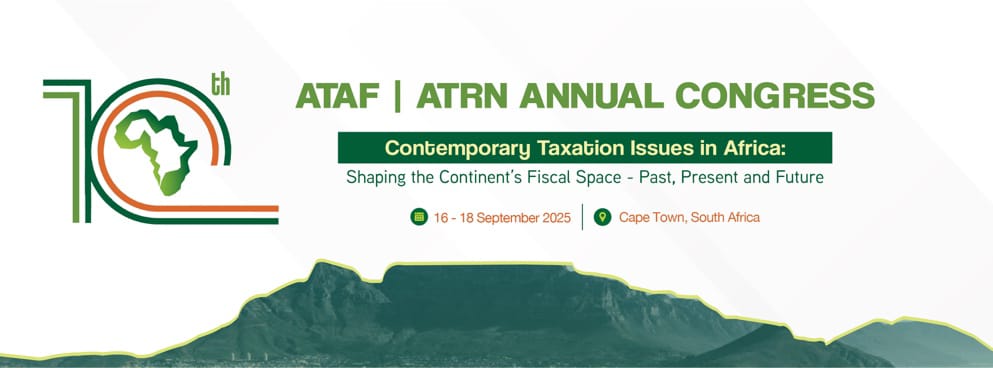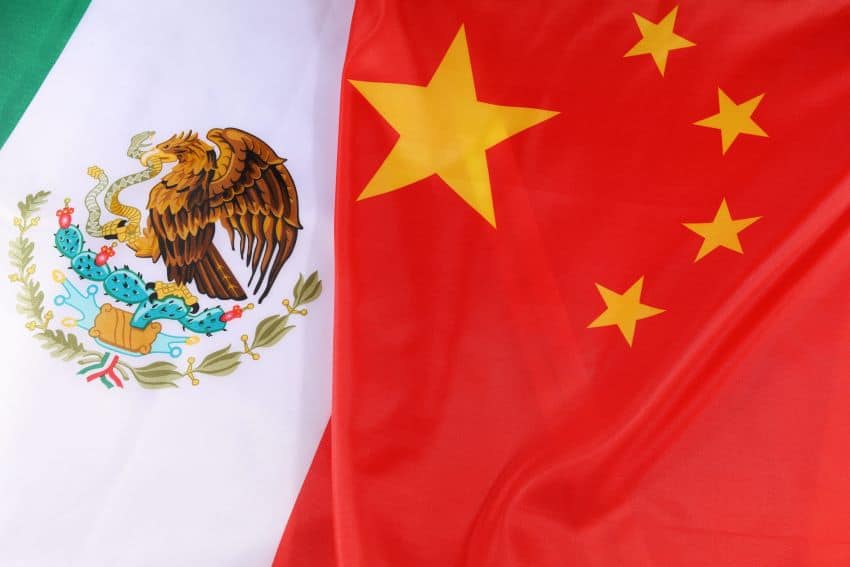By Gnnliberia
Copyright gnnliberia

Digging Deep Into The Same ATRN 10 Years Later
By Danicius Kaihenneh Sengbeh*
When the African Tax Research Network (ATRN) gathers in Cape Town from 16–18 September 2025 for its 10th Annual Congress, it will not only confront Africa’s pressing fiscal challenges but also celebrate a decade of groundbreaking work in shaping the continent’s tax future. Born in Nairobi in 2015 under the African Tax Administration Forum (ATAF), ATRN has morphed into the leading platform for homegrown, policy-relevant tax research, bridging the worlds of academia, administration, and policymaking. In this article, I retrace ATRN’s defining decade—from its early vision of building a research–policy nexus, through milestone congresses in Accra, Dar es Salaam, and Gaborone, to its expanding influence in journals, partnerships, and capacity-building. Drawing on voices of leaders, outcome statements, and the tangible results of its work, I examine how ATRN has evolved into a powerhouse of African scholarship and fiscal innovation. As it steps into its second decade, I argue that the story of ATRN is no longer just about research: it is about redefining how Africa mobilizes knowledge, cooperation, and resources for its fiscal future.
Professor Annet Oguttu, ATRN Advisory Board Chair
INTRODUCTION
When the African Tax Research Network (ATRN) was launched in Nairobi in 2015 under the auspices of the African Tax Administration Forum (ATAF), it was propelled with a bold ambition and a sense of urgency.
That get-up-and-go was to connect African academics, policymakers, and tax administrators around a shared research agenda that genuinely spoke to the continent’s realities and development aspirations. Ten years later, that determination has blossomed into a vibrant intellectual and professional community that is reshaping how Africa talks about, studies, and reforms its taxation systems. More than ever before, that impetus is detonating, expanding, and spreading its tentacles across the continent, influencing debates, shaping policies, and determining how Africa progresses toward sustainable growth and self-reliance.
BUILDING THE RESEARCH–POLICY NEXUS
ATRN was created as more than an academic club. It had a bold and clear mission. That mission was to produce rigorous research, nurture independent researchers, and bridge the longstanding gap between scholarship and policymaking in Africa’s fiscal space. The network has steadily fulfilled this role, positioning itself as the go-to platform for credible, home-produced tax research.
Over the years, the African Multidisciplinary Tax Journal (AMTJ)—a peer-reviewed publication available in English, French, and Portuguese—has become an essential centerpiece of ATRN’s knowledge-sharing mission. The journal delivers academic findings straight into policy debates, publishing applied research on issues ranging from carbon taxes and mobile money levies to e- commerce revenues and environmental fiscal tools. Questions such as how African countries can harness technology to tax the digital economy, and what innovative policy measures can be designed around these emerging realities, have featured prominently in ATRN’s conversations.
That is why, in September 2021, ATAF’s then–Deputy Executive Secretary, Mary Baine, observed that the ATRN had become a catalyst for policy-relevant tax research in Africa, evolving into a strong community that elevates African voices in tax debates.
Over the past decade, ATRN’s annual congresses, like the 2025 gathering, have become
CONGRESSES THAT SHAPED A CONTINENT Laboratories of ideas and consensus-building. Each gathering has brought together revenue officials, academics, and development partners to dissect emerging issues.
In Accra, Ghana, 2022, the 7th ATRN Congress zeroed in on the revenue implications of the African Continental Free Trade Area (AfCFTA). ATAF then-Executive Secretary Logan Wort reminded participants of the stakes: “The research papers presented at this ATRN Congress will form the major part of the third edition of the African Multidisciplinary Tax Journal (AMTJ).”
The outcome statement pushed for unity, declaring: “Cooperation and integration are the real desire; it is time to discuss a shared approach on the use of tax incentives, at the very least to protect or support the lesser developed nations in the community.”
But delegates did not shy away from the challenges. AfCFTA’s tariff reductions threatened to squeeze national revenues. Wort urged pragmatism: “…we must critically strategize on innovative ways to bridge these revenue gaps. This is where the ATAF proudly comes in to strengthen tax administrations and mobilize the much-needed revenues efficiently and effectively for member-countries.”
The following year, in Dar es Salaam, Tanzania, 2023, more than 40 papers unpacked “Contemporary Taxation Issues in Africa.” The discussions were anchored by Tanzania’s Vice- President, Dr. Philip Mpango, who pledged: “Tanzania will remain fully committed to collaborate with other African nations to promote sustainable development and enhance tax administration.”
From academia, Prof. Annet Oguttu of the University of Pretoria, also Chairperson of ATRN’s Advisory Board, pressed hard for self-reliance: “Without conducting research, we will not be able to understand the multifaceted tax problems we face… We need to take ownership of the plight of African tax research.” The congress concluded with a clear directive: “African countries must continue to invest in local research capacity to navigate contemporary tax challenges such as digitalization, BEPS, extractives taxation, and climate finance.”
Researching the journey, I come to realize that the inspiration drawn from these congresses has propelled African researchers to channel their knowledge, skills, and commitment into deeper inquiries on taxation—producing homegrown solutions to the pressing challenge of mobilizing sufficient domestic resources. This drive has not waned; rather, the spirit, the urgency, and the determination to do better for Africa and its people grow stronger with each passing year.
EXPANDING REACH AND INFLUENCE
ATRN’s growth has not been limited to annual gatherings. No, not at all. By 2021 alone, ATAF had delivered 178 technical assistance missions to 25 countries, resulting in an estimated US$1.3 billion in additional revenues. This blend of research and applied support has amplified ATRN’s credibility. For instance, in Gaborone, Botswana, 2024, ATRN deepened partnerships by signing
a memorandum of understanding with the Tax Justice Network Africa (TJNA). As the joint statement noted: “Our collaboration with TJNA is about more than research—it is about ensuring Africa’s tax systems work for its people.”
TOWARD THE 10TH CONGRESS
The upcoming 10th ATRN Congress in Cape Town (16–18 September 2025) marks a defining moment in the network’s journey. With the theme “Contemporary Taxation Issues in Africa:
Shaping the Continent’s Fiscal Space – Past, Present, and Future”, it promises to tackle urgent sub-themes such as digitalization, extractives taxation, global minimum tax, and demographic fiscal shifts. For many, this congress symbolizes not just a celebration of the past decade but also a pivot to the next. Dr. Nara Monkam, ATAF’s Director of Research, summed up this forward- looking vision as early as 2021: “Through the ATRN, we are equipping the next generation of African scholars with tools to generate cutting-edge research that can influence domestic resource mobilization policies.”
A DEFINING DECADE
Looking back, ATRN has transformed from a modest forum in Nairobi into Africa’s premier crucible of tax research. It has fostered evidence-based policymaking, elevated African scholarship, and created spaces where research informs real-world reforms.
Yes, ten years have gone – so soon. But I am even aware that the task ahead is no less urgent. As global tax debates intensify and domestic revenue pressures mount, ATRN’s role will only grow, and its existence will become more demanding. With its tenth congress this week, I can safely argue that the network stands ready to consolidate its achievements and chart the future. Or, as Logan Wort once put it when reflecting on the AfCFTA challenge:
“ATAF will support the continent to navigate the revenue implications of the AfCFTA while ensuring its smooth implementation.”
Yes, it is the same ATRN one decade later, but it is no longer the same infantile network. It has full-grown. In ten years, it has metamorphosed into a powerhouse of African tax research and policy innovation, shaping not only how the continent studies taxation, but how it governs its fiscal future. Ten years on, ATRN is not just chronicling Africa’s fiscal story—it is helping to write its next chapter. And that excitements and vigor will shine and shape the Cape Town conversations.



